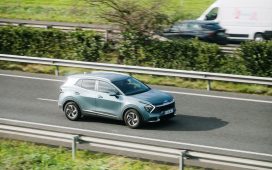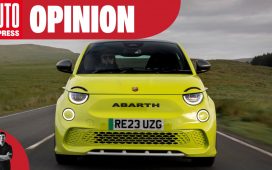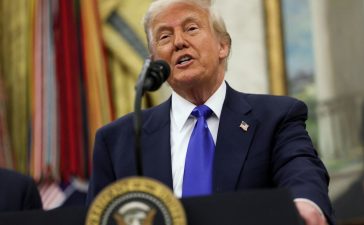THE value of some second-hand electric vehicles has HALVED as a slowdown in demand sends used car prices tumbling.
Campaigners blame the slump on the Government pushing back the ban on sales of new petrol and diesel cars from 2030 to 2035 — along with a lack of cash incentives to buy used.
Experts say that a £50,000, three-year-old vehicle could now sell for as little as £17,500, compared to £30,000 previously — meaning the residual value has fallen by almost 50 per cent.
Kia’s Niro EV4, one of the UK’s most popular electric motors, costs £40,920 new, but a 2022 model with just 15,721 miles on the clock was up for sale this week at £20,750 on website Carwow.
Meanwhile, a 2023 BMW iX3, costing £65,160 new, is available on used car sales website Cinch for £34,889, with only 14,500 miles on the clock — a huge drop on its original worth.
Ask Alfie, The Sun on Sunday’s used car expert, said: “This is the Government’s heavy-handed efforts to force us all into electric cars by 2035 coming home to roost.
“But, as ever, the people who end up footing the cost of an ill thought-out scheme are the public.
“Electric vehicles are good in their own way, but the battery tech and UK charging infrastructure simply aren’t at the levels yet where people can easily replace their petrol or diesel cars with a similar electric equivalent and not have to worry about it.
“Also, electric cars are still quite a lot more expensive to buy or lease model-for-model than a similar internal combustion vehicle.
“Compare that to Ireland, for instance, where their tax laws massively favour EVs and often make them much cheaper to buy than polluting cars of the same power and specification.”
Alfie also argued that poorer battery performance on older vehicles was putting the brakes on the second-hand market.
He said: “Some people just don’t want to buy older EVs because they are probably not going to go as far on a single charge of battery as they would when they were new or a few years old.
“Manufacturers should make battery swaps on older EVs far more affordable.
“Currently, it’s deep into four figures to do the job.
“Then all I can see happening is the second-hand market becoming awash with a load of electrical white elephants.
“It’s a shame, but it’s what happens when you put all your eggs in one basket.
“Our Government, like so many others, blindly pursued the EV idea without thinking about any other low-carbon alternatives, like hydrogen cars or synthetic fuels.”
Alfie revealed that even the luxury end of the market is hit.
Porsche Taycans, which cost up to £100,000 new in 2020, have, in some cases, been sold at the end of hire leases for just £40,000.
British Vehicle Rental And Leasing Association chief executive Gerry Keaney last week addressed an event in Parliament and insisted the plunging second-hand market could not continue.
Tax breaks
He argued that the Government needed to offer incentives for consumers to buy used EVs.
Gerry represents firms which lease cars to companies and individuals for three years then sell them on the second hand-market.
He told Westminster the amount left over on a car’s value after that period had fallen from 60 per cent to 35 per cent, and that selling at such a loss is “not sustainable”.
Gerry added: “EV residual values in the last two years have dropped by 50 per cent.
“That is the evidence of the accelerated depreciation write-off we’ve seen.”
Weak demand in sales of new electric vehicles has led to discounting by manufacturers — which is also thought to have helped drive a rapid drop in value.
The BVRLA, along with The Society of Motor Manufacturers and Traders, which represents car makers in the UK, has called for tax breaks to boost demand.













